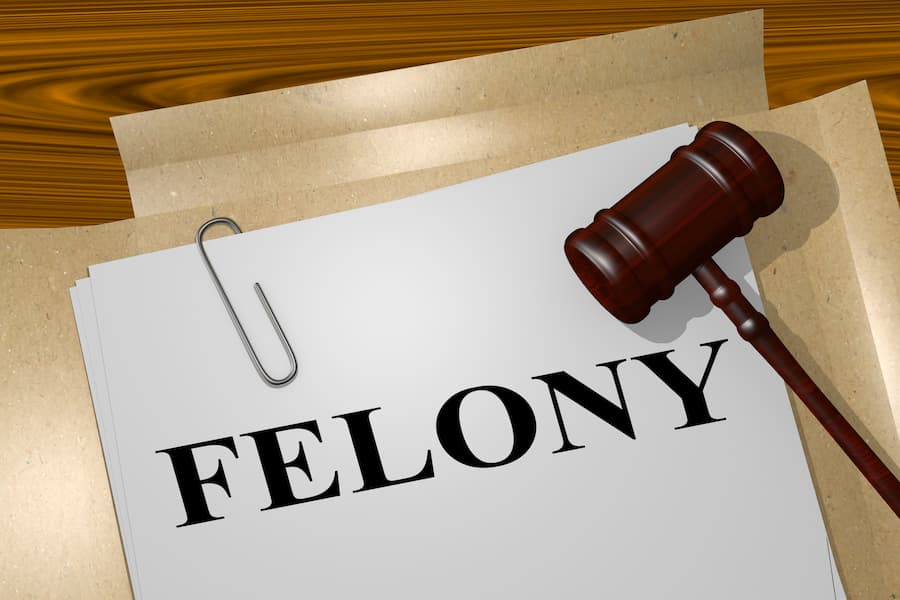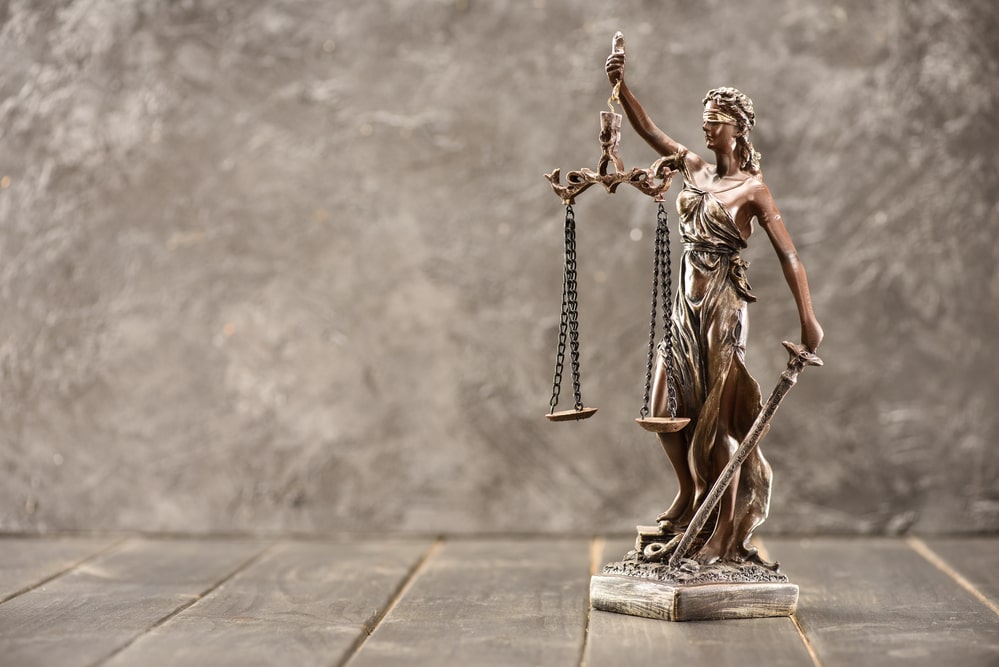To appeal a criminal conviction in California, you must file a "Notice of Appeal" within a strict deadline—typically 60 days for a felony or 30 days for a misdemeanor.
An appeal is not a new trial where you present new evidence; instead, it asks a higher court to review the trial record for legal errors that may have affected the outcome.
A successful appeal requires identifying a "prejudicial legal error," which means a mistake so significant that it might have changed the jury's decision. You cannot appeal simply because you disagree with the verdict. The focus must be on flaws in the legal process itself.
While statistics show that overturning a conviction is challenging, a meticulously prepared appeal is the path to correcting a miscarriage of justice. A successful appeal leads to a new trial or even a dismissal of charges.
If you have a question about a recent conviction and your options for an appeal, call us. Our team at Chudnovsky Law is available 24/7 to listen. Call (213) 212-5002 for a consultation.
Key Takeaways for Appealing a Criminal Conviction in California
- Strict deadlines are non-negotiable. You have only 30 days for a misdemeanor or 60 days for a felony charge to file a Notice of Appeal, and missing this deadline forfeits your right to appeal.
- Appeals are based on legal errors, not new evidence. An appellate court only reviews the existing trial record for mistakes made by the judge, prosecutor, or criminal defense attorney; it does not re-evaluate the facts or hear new testimony.
- A "prejudicial error" is the foundation of a successful appeal. You must prove that a legal mistake was so significant that it likely affected the outcome of your case.
The First Question: Is an Appeal Your Right Path?
After a conviction, it is natural to want a second chance to tell your story or present new facts you believe were missed. Many assume an appeal offers exactly that, a do-over of the trial. This is a fundamental misunderstanding of what the appellate process is designed to accomplish.

An appeals court will not re-weigh the evidence or listen to new witness testimony. It only reviews the existing "record on appeal"—the collection of documents and transcripts from the original trial. If a mistake was not preserved in that record, it is as if it never happened for the purposes of a direct appeal. The reversal rate for criminal appeals is low, with one study of a California Court of Appeal showing a reversal rate of only about 5 percent, which means the argument must be precise and legally sound.
The solution is to shift your focus from re-arguing innocence to identifying legal mistakes. Did the judge make an incorrect ruling on evidence? Were the jury instructions confusing or legally wrong? Did your attorney fail to provide adequate representation? Pinpointing these specific legal errors is the only way forward on a direct appeal.
What Are Valid Grounds for an Appeal in California?
Here are some common grounds for an appeal our practice focuses on:
- Incorrect Rulings by the Judge: A judge has significant power over what a jury hears. If a judge improperly allowed the prosecution to admit evidence that should have been excluded, or blocked your defense from presenting key evidence, it may be grounds for an appeal.
- Flawed Jury Instructions: The instructions read to the jury are a roadmap for how they should apply the law to the facts. If that roadmap was wrong—for example, if it misstated the definition of a crime or your defense—the jury may have reached a verdict based on incorrect legal reasoning.
- Prosecutorial Misconduct: The prosecutor's job is to seek justice, not just a conviction. If they engaged in improper behavior, such as making inflammatory statements to the jury they knew were not supported by evidence, or failing to turn over exculpatory evidence to the defense, this is a basis for an appeal.
- Ineffective Assistance of Counsel: The Sixth Amendment guarantees you the right to an effective lawyer. If your trial attorney’s performance fell below the established professional standards and it harmed your case, you may have a claim. This could include failing to investigate the case properly, not calling important witnesses, or failing to object to improper evidence.
- Sentencing Errors: Sometimes the trial itself is sound, but the judge makes a mistake when imposing the sentence, applying a law incorrectly or exceeding the legal maximum. Recent changes in California law, such as AB 1540, have also created new avenues for resentencing hearings and appeals in cases with excessive sentences.
- Juror Misconduct: Jurors are forbidden from doing their own independent research or having contact with outside parties about the case. If a juror violated these rules, their misconduct could taint the verdict.
What If You Pleaded Guilty? You May Need a Certificate of Probable Cause
If you didn’t go through a trial and instead pleaded guilty or no contest, your path to appeal starts with an extra step: requesting a Certificate of Probable Cause.
This certificate is a short statement from the judge confirming there’s a legitimate legal question worth reviewing on appeal. You’ll need to explain why your appeal raises a legal issue beyond just regretting your plea or sentence.
When Do You Need It?
California law requires a Certificate of Probable Cause under Penal Code § 1237.5 anytime you're appealing after a plea deal. That includes most guilty pleas, no contest pleas, and even some sentencing issues tied directly to the plea agreement.
What Qualifies?
You can’t appeal just because you changed your mind. But you may qualify if:
- The plea wasn’t knowing or voluntary.
- You were misinformed about the consequences.
- The court accepted your plea without following proper legal procedure.
How Do You Request It?
Your lawyer must file the request with the trial court, usually at the same time or shortly after filing your Notice of Appeal. The court has discretion to approve or deny it. If it’s denied, your appeal may be dismissed unless there’s another legal basis that doesn’t require the certificate.
Without this certificate, the appellate court can’t even consider your arguments. It’s the gatekeeper. A good appellate lawyer will handle this automatically, but it’s a step that must be done right and on time.
The Clock is Ticking: California’s Unforgiving Appeal Deadlines
As mentioned earlier, you have 60 days from the date of the judgment to file a Notice of Appeal for a felony conviction. For a misdemeanor, the deadline is just 30 days. Understanding the The difference between misdemeanors and felonies in California difference between misdemeanors and felonies is important, as it can affect both the appeal timeline and the legal consequences.

These deadlines are among the strictest in the legal system. The California courts enforce them rigidly because the system is designed to bring finality to legal cases. Missing this deadline, even by one day, generally means you forfeit your right to a direct appeal forever. The document that must be filed is called a "Notice of Appeal," and it is a relatively simple form that officially informs the court you intend to challenge the conviction. If you miss this deadline, it’s crucial to consult with an experienced California felony defense lawyer who can help navigate the legal process and explore other potential options.
Filing this notice is the single most important action to take to preserve your legal options. It does not require you to have all your arguments ready; it simply holds your place in line and gives your legal team the time needed to obtain the trial records, comb through them for errors, and build your case.
Do not wait. The first step is to ensure the Notice of Appeal is filed correctly and on time. A law firm handling appeals files this for you immediately to ensure your rights are protected.
The California Criminal Appeal Process: A Step-by-Step Walkthrough
The appeals process is very different from a trial. It is a slow, methodical review of written arguments. On average, an appeal in the California Court of Appeals takes between 12 and 18 months from filing to resolution.
Here is what to expect:
- Step 1: Filing the Notice of Appeal. It tells the court you are appealing and starts the process of preparing the official record.
- Step 2: Assembling the Record on Appeal. The court clerk and the court reporter will prepare the official record from the trial. This includes the "clerk's transcript" (all documents filed in the case) and the "reporter's transcript" (the word-for-word transcript of everything said in court). This record is the entire universe of facts the appellate court will consider.
- Step 3: Researching and Writing the Appellate Briefs. This is the core of the appeal.
- The Appellant's Opening Brief: Your lawyer will file an extensive written document known as a brief. This document identifies the legal errors, presents the argument for why they were prejudicial, and cites case law and statutes to support that argument. This is where the case is won or lost.
- The Respondent's Brief: The government, represented by the Attorney General's office, will then file its own brief, arguing that no errors occurred or that any errors were harmless and the conviction should be upheld.
- The Reply Brief: Your lawyer has the option to file one final brief to reply to the arguments made by the government.
- Step 4: Oral Argument. In some cases, the court will schedule an oral argument. This is not a hearing with witnesses. It is a 15-30 minute session where your lawyer and the government's lawyer appear before a panel of three appellate judges to answer questions about the arguments made in their briefs.
- Step 5: The Decision. After reviewing the briefs and hearing oral argument, the judges will issue a written opinion, typically within 90 days. The possible outcomes are:
- Affirm: They agree with the trial court, and the conviction stands.
- Reverse: They agree that a prejudicial error occurred. This may result in the conviction being overturned and the charges dismissed, or it could lead to a new trial.
- Remand: They send the case back to the trial court with instructions to correct a specific error, which might involve a new sentencing hearing or other proceedings.
What if a Direct Appeal Isn't an Option or Fails?
A direct appeal is limited to errors found within the trial record. But what happens if the evidence of a legal injustice lies outside of that record? California law provides other mechanisms for post-conviction relief.
The most common is a petition for a writ of habeas corpus. This is a separate civil filing that argues you are being unlawfully imprisoned. It is used to present issues that are impossible to raise on direct appeal, such as:
- Newly discovered evidence of innocence.
- Ineffective assistance of counsel that is not reflected in the transcript (e.g., your lawyer failed to interview a key witness who never appeared in court).
- Constitutional violations that occurred outside the courtroom.
Filing a habeas petition is a complex process with its own set of rules and deadlines, but it serves as another potential avenue for justice when a direct appeal is not the right tool.
FAQ for Appealing a Criminal Conviction in California
Can I present new evidence in my appeal?
No. A direct appeal is strictly a review of the existing trial record. A writ of habeas corpus is the proper channel to introduce significant new evidence that was not available at the time of your trial.
What is a "Certificate of Probable Cause"?
If you pleaded guilty or "no contest" and want to appeal, you generally must first get a Certificate of Probable Cause from the trial judge. This is a statement from the judge that you have reasonable grounds for an appeal, which is required under Penal Code section 1237.5.
Will I be released from jail during my appeal?
Not automatically. You can request "bail on appeal," but it is rarely granted. It requires showing the court you are not a flight risk or a danger to the community and that your appeal raises a substantial legal question.
We Fight to Protect Your Future

One phone call is enough to understand your options. Our team provides guidance in Spanish, French, Italian, Amharic, Hebrew, and Portuguese, ensuring you discuss your case in the language you are most comfortable with.
If you are considering an appeal for a conviction in California, call Chudnovsky Law now at (213) 212-5002 for a consultation. We are available 24/7.